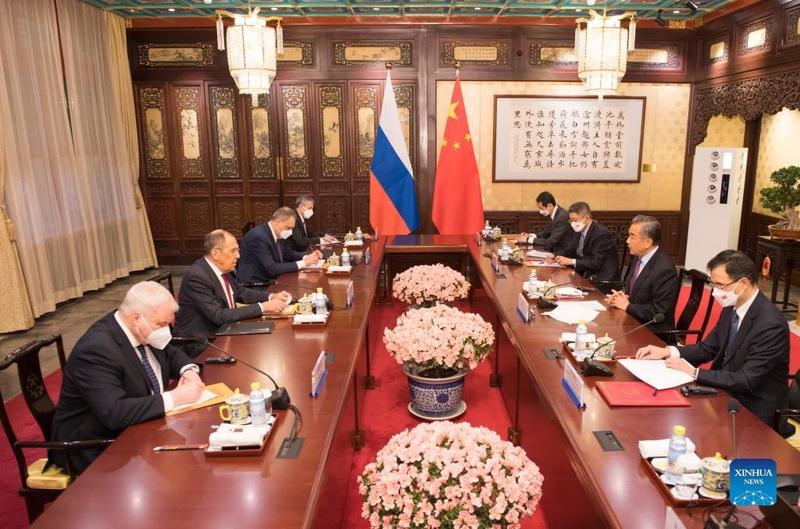 Chinese State Councilor and Foreign Minister Wang Yi meets with Russian Foreign Minister Sergei Lavrov in Beijing, capital of China, Feb 3, 2022. (GAO JIE/XINHUA)
Chinese State Councilor and Foreign Minister Wang Yi meets with Russian Foreign Minister Sergei Lavrov in Beijing, capital of China, Feb 3, 2022. (GAO JIE/XINHUA)
BEIJING - Chinese State Councilor and Foreign Minister Wang Yi on Thursday met with visiting Russian Foreign Minister Sergei Lavrov in Beijing, as they made political preparations for the upcoming meeting between the two countries' heads of state.
READ MORE: Xi, Putin pledge more coordination
Noting that Chinese President Xi Jinping and Russian President Vladimir Putin will have a face-to-face meeting on Friday for the first time in more than two years, Wang said the primary task of his meeting with Lavrov is making final political preparations for the in-person meeting between the two heads of state.
The two sides agreed to carry forward the Olympic spirit, jointly reject politicization of sports, and support the holding of the Beijing Winter Olympic
"Guided by the consensus reached by the two heads of state, China is ready to work with Russia to deepen the time-honored friendship and comprehensive strategic coordination between the two countries, uphold international fairness and justice and bring more benefits to the people of the two countries and the world at large," Wang said.
He called on the two sides to build consensus on fighting the pandemic, enhance mutual trust and understanding, strengthen the alignment of measures to block cross-border spread of the coronavirus, ensure normal personnel exchanges and trade, so as to promote steady and long-term development of bilateral pragmatic cooperation.
ALSO READ: Xi: China, Russia champions of multilateralism, global justice
For his part, Lavrov said that Russia appreciates China's efforts to deepen bilateral cooperation and is ready to work with China to seek greater synergy between the Eurasian Economic Union and the Belt and Road Initiative to expand common interests.
The two sides agreed to carry forward the Olympic spirit, jointly reject politicization of sports, and support the holding of the Beijing Winter Olympics.
They also voiced their common stand for safeguarding peace and stability in the Asia-Pacific region and oppose any attempt to create bloc confrontation.


